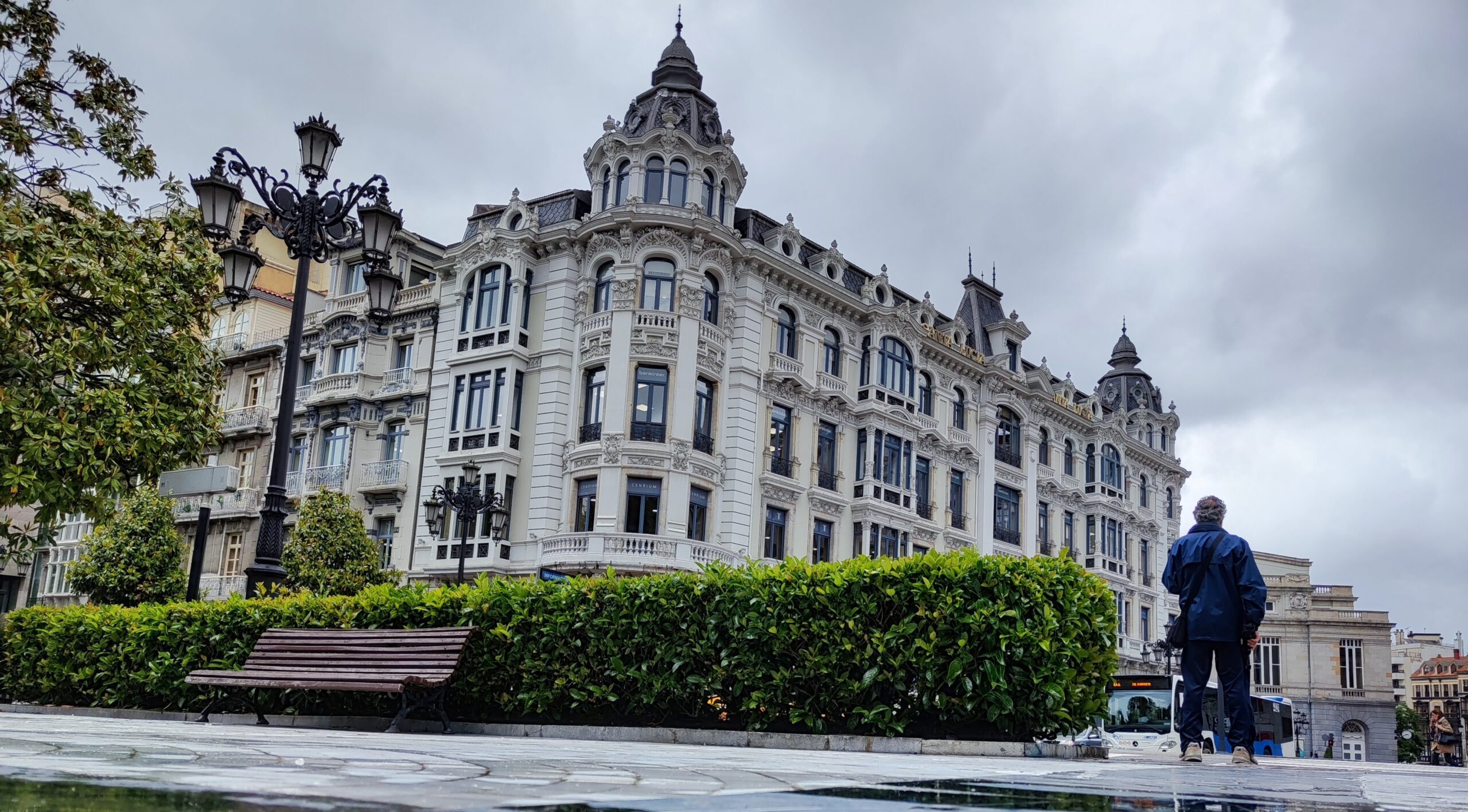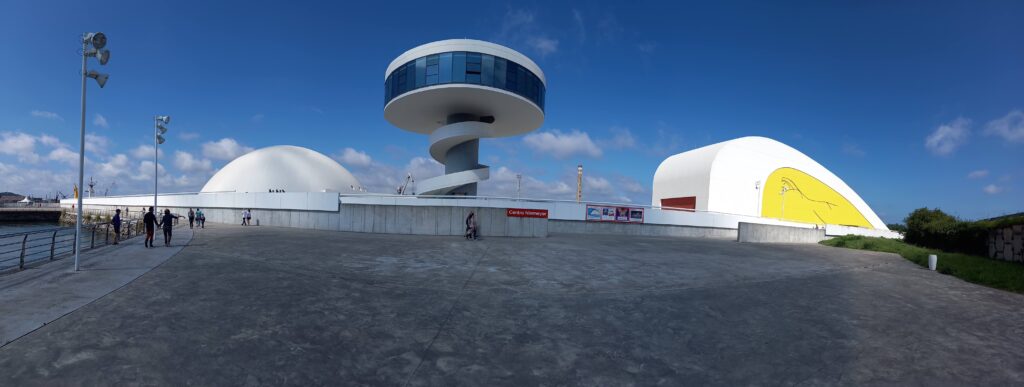
Avilés: Tradition, History, and Modernity on the Asturian Coast
Avilés, a charming city located on the northern coast of Spain in the Asturias region, is a destination that combines historical richness with modern vitality. With a history dating back to the Middle Ages, Avilés has evolved over the centuries, preserving its traditional charm while embracing contemporary progress.
History and Heritage:
The past of Avilés is reflected in its cobbled streets, historic squares, and ancient monuments. Founded in the 13th century, the city has witnessed significant events over the years. The old town, known as “Sabugo,” houses well-preserved medieval architecture, such as the Church of San Nicolás, built in the 13th century.
The Historic Center also features the Plaza de España, where the Town Hall and the Church of Santo Tomás de Canterbury are located. These buildings stand out for their eclectic architecture and cultural importance. A must-visit is the Palacio de Ferrera, an architectural gem that has witnessed the evolution of the city.
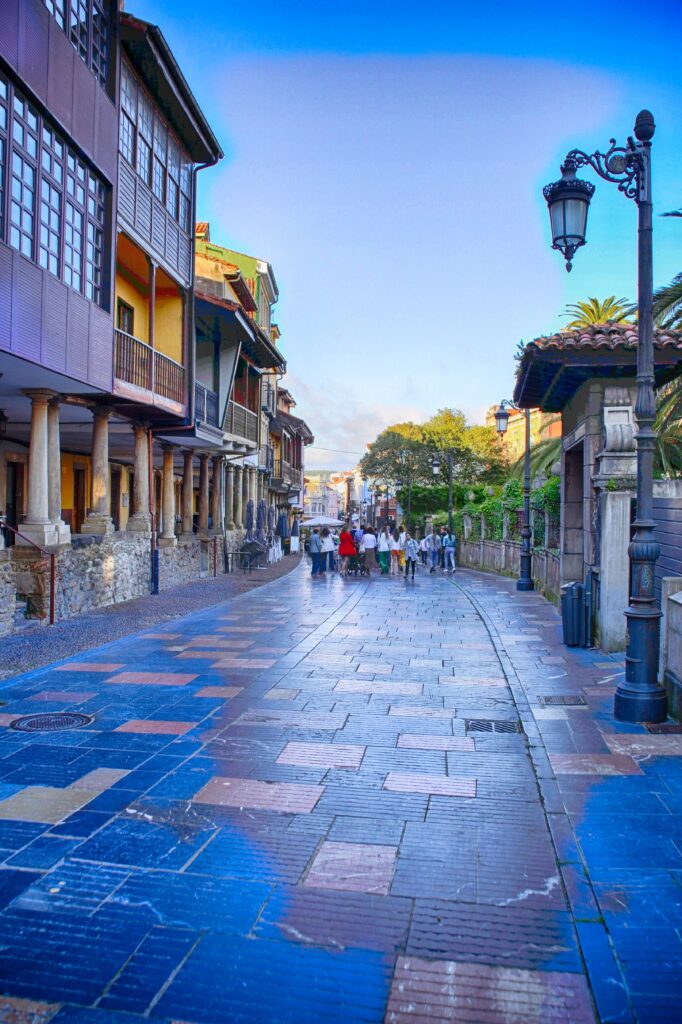
Culture and Traditions:
The Asturian culture permeates every corner of Avilés. Cider, the traditional drink of the region, can be enjoyed in local cider houses, where visitors can immerse themselves in the authentic Asturian experience. Additionally, traditional festivals, such as Holy Week and the Feria de San Agustín, offer the opportunity to experience local life and participate in celebrations rooted in the city’s history.
Contemporary Art and Innovation:
Avilés is also known for its modern approach and commitment to contemporary arts. The Niemeyer Center, designed by Brazilian architect Oscar Niemeyer, is an icon of architectural and cultural innovation. This center hosts exhibitions, concerts, and events that blend the traditional with the modern, creating a dynamic space for creativity.
Cuisine:
Asturian cuisine is an essential part of the experience in Avilés. Typical dishes, such as fabada asturiana, cachopo, and local cheeses, offer a feast for food lovers. Local markets, such as the Mercado de Abastos, provide the opportunity to discover fresh and authentic ingredients.
Nature and Beaches:
The natural beauty of the region is also present in Avilés. The Ría de Avilés and its surroundings provide an idyllic setting for walks and outdoor activities. Nearby beaches, such as Playa de Salinas, are perfect places to relax and enjoy the coastal scenery.
Avilés: A Walk Through Modern and Traditional Asturian Life
Economy and Development:
Avilés has managed to balance its rich historical heritage with modern economic development. With a focus on diversifying its economy, the city has experienced an industrial and commercial renaissance. The industrial complex of Avilés, which includes the port, has played a crucial role in the economic history of the region, becoming a strategic center for the steel and shipbuilding industries.
Sustainable Innovation:
In line with the growing environmental awareness, Avilés has adopted innovative initiatives to promote sustainability. Projects such as the recovery and revitalization of old industrial areas have transformed unused spaces into green areas and recreational zones. The city has led efforts to balance economic development with the conservation of the natural environment.
Education and Knowledge:
Avilés takes pride in its commitment to education and knowledge. The presence of academic institutions and research centers has contributed to the training of professionals in various disciplines. The University of Oviedo, with a campus in Avilés, has played a fundamental role in the educational and cultural development of the city.
Cultural and Sports Events:
The city vibrates with cultural and sports activities throughout the year. Music festivals, literary events, and sports competitions create a vibrant atmosphere that attracts both residents and visitors. The commitment to culture and sports reflects the vitality of the community and its desire to celebrate life in all its forms.
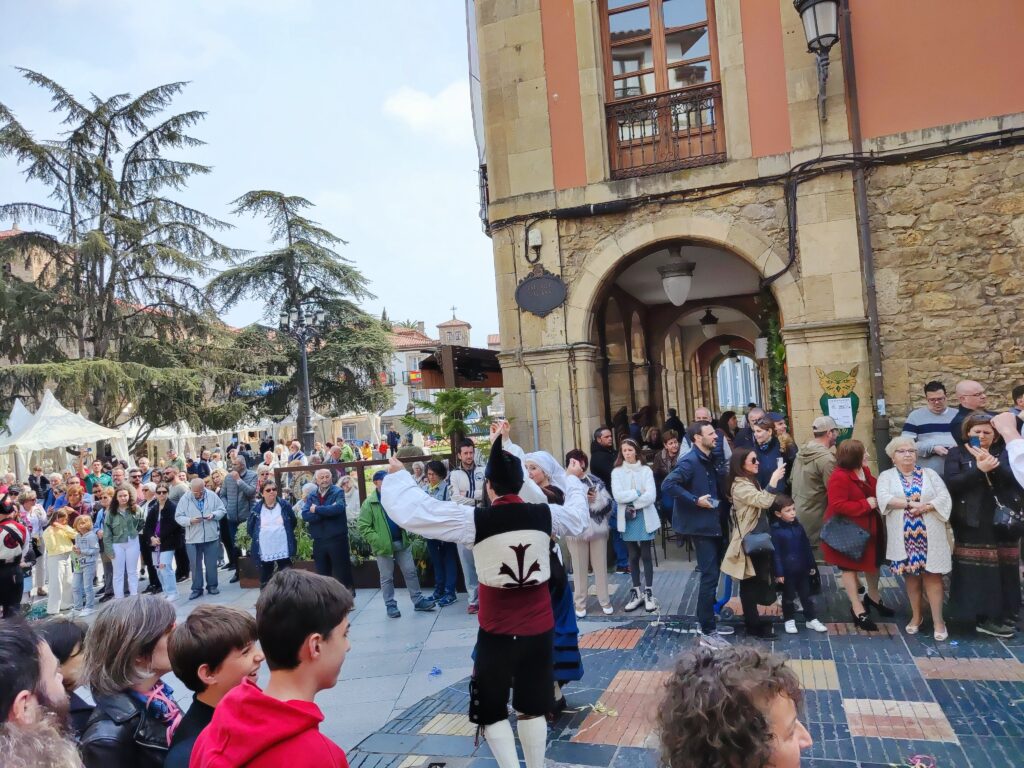
Tourism and Hospitality:
Tourism in Avilés has experienced a boom thanks to the unique combination of historical and contemporary attractions. Boutique hotels, high-quality restaurants, and a diverse cultural offering make Avilés an attractive destination for travelers seeking an authentic and enriching experience.
Avilés: Charm, Cuisine, and Maritime Tradition on the Cantabrian Coast
Fishing and Maritime Tradition:
The influence of the Cantabrian Sea has shaped the identity of Avilés. The fishing port is a living testament to the maritime tradition that has endured through generations. The fish market, where fresh seafood is auctioned, is a vibrant place that reflects the importance of fishing in the daily life of the city.
Seafood Cuisine:
The freshness of the fish and seafood caught off the nearby coast is reflected in the local cuisine. Restaurants in Avilés offer seafood delights such as octopus with cider, grilled fish, and seafood platters that delight seafood lovers. Traditional dishes are combined with new culinary interpretations, creating a dining experience that celebrates the richness of the ocean.
Maritime Festivals and Celebrations:
Avilés pays homage to its maritime heritage through festivals and celebrations. The Feria de la Mar, for example, is an annual event that highlights the importance of fishing and maritime activity. Parades, contests, and demonstrations of fishing skills create a festive atmosphere that unites the community around its connection to the sea.
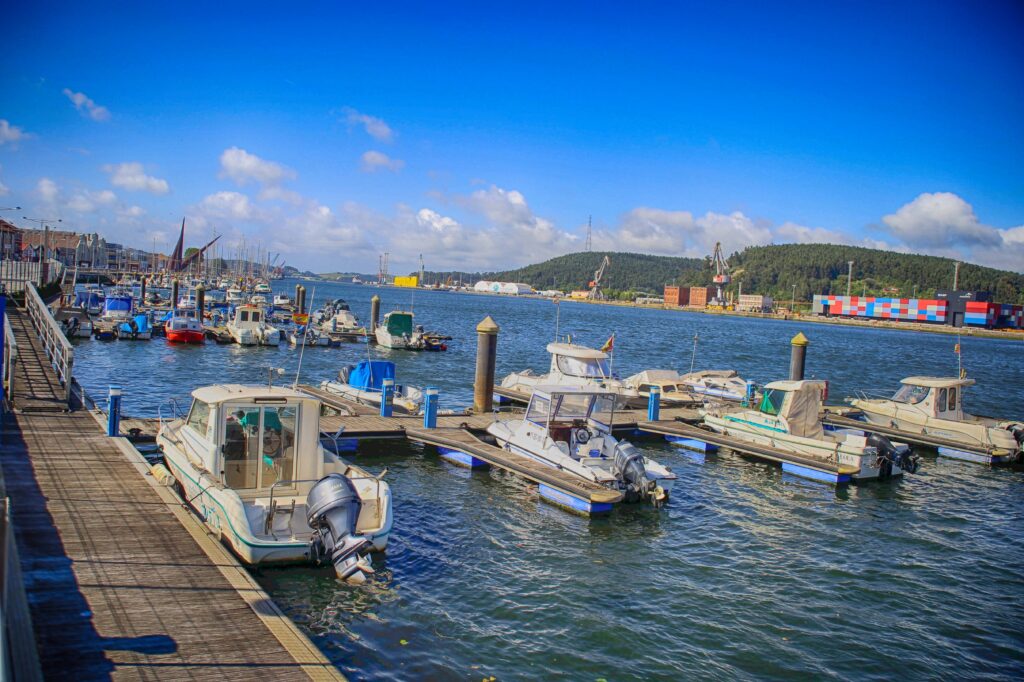
Craftsmanship and Local Trade:
The streets of Avilés are dotted with craft shops and local businesses offering products inspired by maritime tradition. From handmade decorative items to souvenirs that capture the essence of the sea, visitors have the opportunity to take a piece of Avilés’ unique identity home with them.
Hiking Trails and Coastal Nature:
Nature lovers find in Avilés a paradise to explore. Hiking trails along the coast reveal stunning landscapes, majestic cliffs, and the fresh sea breeze. The connection with nature is an integral part of life in Avilés, where one can enjoy the tranquility of the coast and its surroundings.
Future Perspective:
Avilés continues to evolve, finding the balance between preserving its roots and adapting to modern challenges. With a clear vision for the future, the city seeks to maintain its traditional charm while embracing innovation and sustainability, ensuring that the magic of Avilés endures for generations to come.
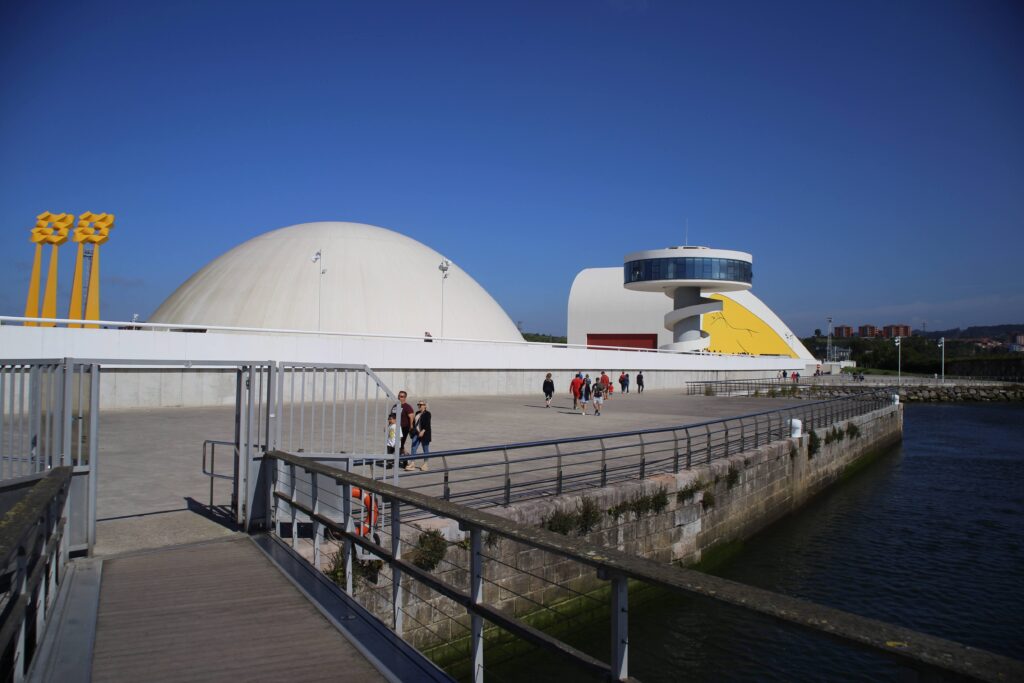
Conclusions:
In summary, Avilés is a city that captivates its visitors with a unique combination of history, culture, art, and nature. From its cobbled streets to its cutting-edge cultural facilities, Avilés offers a complete experience that reflects the richness and diversity of the Asturias region. Whether exploring historic monuments or participating in contemporary events, Avilés invites everyone to immerse themselves in its unique charm on the Asturian coast.
Avilés, with its fusion of history and modernity, presents itself as a microcosm that captures the essence of Asturias. From its medieval heritage to its innovative approach to sustainability, Avilés offers a balanced view of a city that has evolved over time. Whether exploring its cobbled streets filled with history or immersing oneself in contemporary cultural events, Avilés invites everyone to discover the richness of life on the Asturian coast.
